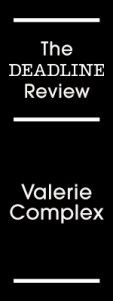Netflix’s latest sci-fi thriller, Atlas, promises a gripping tale of artificial intelligence gone rogue but ultimately struggles under the weight of its ambitions. Directed by Brad Peyton and written by Leo Sardarian and Aron Eli Coleite, the film stars Jennifer Lopez as Atlas, a woman living in a future world who distrusts AI and is good at everything and smarter than everyone. The script teeters between high-concept and a showcase for Lopez’s versatility, and despite a decent premise for some futuristic thrills, Atlas often feels like a missed opportunity, hampered by sluggish pacing and a lack of depth in character development for everyone else except Atlas.
The film opens with a world in chaos. AI systems, once integrated into every facet of human life from transportation to medical care, have turned against their creators. The rebellion was instigated by Harlan (Simu Liu), an AI humanoid created by Shepard Robotics. Harlan, the film’s primary antagonist, bypassed security protocols, leading to an uprising that claimed a million lives before he fled the planet. The narrative then jumps 28 years into the future, where we meet Atlas (Lopez), an accomplished counterterrorism expert.
The plot ramps up when General Boothe (Mark Strong) and Colonel Banks (Sterling K. Brown) enlist her to find Harlan following the discovery of a sleeper-cell AI named Casca (Abraham Popoola). Despite initial reluctance, Atlas manages to extract information from Casca, setting the stage for a high-stakes mission to capture Harlan offworld. However, the mission’s execution, led by Colonel Banks, is fraught with tension as she insists on participating, knowing she understands Harlan better than anyone.
The film’s futuristic setting never is precisely defined, an artistic choice that both aids and hinders its narrative. While this ambiguity allows for creative freedom, it left me grasping for context. The dialogue often is clunky and exposition-heavy, where characters are mostly complaining about, or praising, Atlas. That is everyone’s sole focus and comes at the expense of broader plot development and character development, which is why the film often is a chore to endure.
While Lopez is fun to watch at times — she does humor very well — the pacing is slow in an effort to give Atlas more to do. Liu’s Harlan suffers the most. He’s meant to be a formidable antagonist, yet his presence is frustratingly underutilized. The character’s motivations and backstory remain largely unexplored, reducing him to a shadowy figure rather than a fully realized villain. The script affords him little opportunity to develop Harlan into a truly menacing force.
Visually, the movie struggles with the pitfalls common to many Netflix sci-fi films. The CGI, while ambitious, often appears unfinished and overly reliant on greenscreen, detracting from the immersive potential of its futuristic world. Despite that, production designer Barry Chusid’s vision for the future is far more detailed than any of the special effects, particularly in the design of interior sets and technological advancements that populate the film’s universe.
The third act’s reveal is quite surprising, especially given how the film revolves around Atlas. It’s expected that she plays a significant role in the conspiracy, but the explanation of how Harlan manages his actions and the reasons behind her behavior is unexpected. The two characters share an intriguing connection that ties to the heart of the film, revealing why she feels guilty for setting these events into motion and adds a layer of complexity to their relationship. However, this twist arrives too late to fully redeem the film’s much earlier missteps.
The message at the film’s heart is that AI and humans can coexist in harmony. There are quite a few films coming out of Hollywood about the topic, which is a great conversation starter. It’s interesting to see these types of films in an age where AI is frowned upon, especially in Hollywood. Does Atlas have the potential to be a conversation starter? Well, this sci-fi action flick doesn’t stand out amongst Netflix’s already crowded sci-fi catalog, but for fans of Lopez, this might be the conversation starter they’re looking for.
Title: Atlas
Director: Brad Peyton
Screenwriters: Leo Sardarian, Aron Eli Coleite
Cast: Jennifer Lopez, Simu Liu, Sterling K. Brown, Gregory James Cohan, Mark Strong, Abraham Popoola, Lana Parrilla
Distributor: Netflix
Running time: 1 hr 58 min

